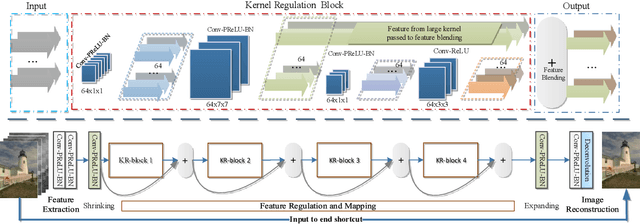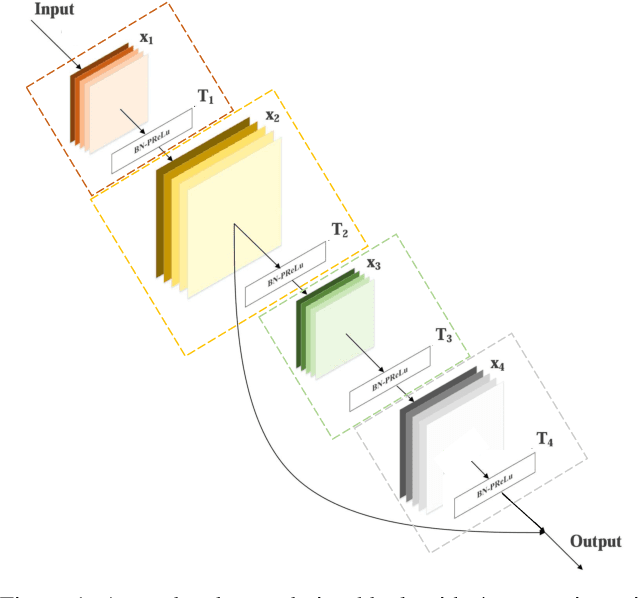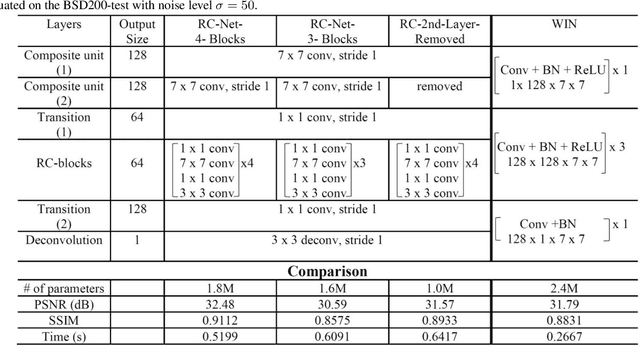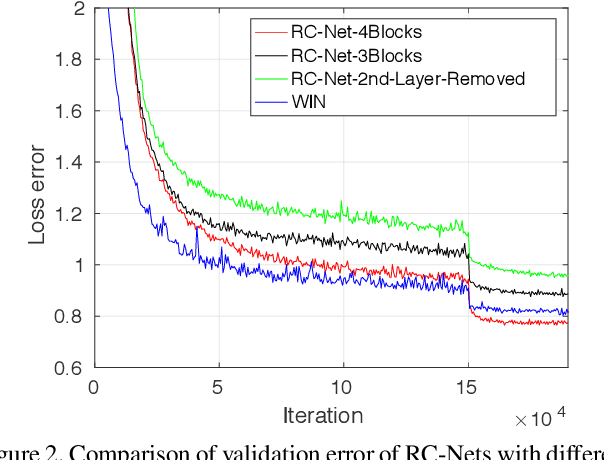Xiaoxiao Zhou
KRNET: Image Denoising with Kernel Regulation Network
Oct 20, 2019



Abstract:One popular strategy for image denoising is to design a generalized regularization term that is capable of exploring the implicit prior underlying data observation. Convolutional neural networks (CNN) have shown the powerful capability to learn image prior information through a stack of layers defined by a combination of kernels (filters) on the input. However, existing CNN-based methods mainly focus on synthetic gray-scale images. These methods still exhibit low performance when tackling multi-channel color image denoising. In this paper, we optimize CNN regularization capability by developing a kernel regulation module. In particular, we propose a kernel regulation network-block, referred to as KR-block, by integrating the merits of both large and small kernels, that can effectively estimate features in solving image denoising. We build a deep CNN-based denoiser, referred to as KRNET, via concatenating multiple KR-blocks. We evaluate KRNET on additive white Gaussian noise (AWGN), multi-channel (MC) noise, and realistic noise, where KRNET obtains significant performance gains over state-of-the-art methods across a wide spectrum of noise levels.
Image Restoration Using Deep Regulated Convolutional Networks
Oct 19, 2019



Abstract:While the depth of convolutional neural networks has attracted substantial attention in the deep learning research, the width of these networks has recently received greater interest. The width of networks, defined as the size of the receptive fields and the density of the channels, has demonstrated crucial importance in low-level vision tasks such as image denoising and restoration. However, the limited generalization ability, due to the increased width of networks, creates a bottleneck in designing wider networks. In this paper, we propose the Deep Regulated Convolutional Network (RC-Net), a deep network composed of regulated sub-network blocks cascaded by skip-connections, to overcome this bottleneck. Specifically, the Regulated Convolution block (RC-block), featured by a combination of large and small convolution filters, balances the effectiveness of prominent feature extraction and the generalization ability of the network. RC-Nets have several compelling advantages: they embrace diversified features through large-small filter combinations, alleviate the hazy boundary and blurred details in image denoising and super-resolution problems, and stabilize the learning process. Our proposed RC-Nets outperform state-of-the-art approaches with significant performance gains in various image restoration tasks while demonstrating promising generalization ability. The code is available at https://github.com/cswin/RC-Nets.
 Add to Chrome
Add to Chrome Add to Firefox
Add to Firefox Add to Edge
Add to Edge